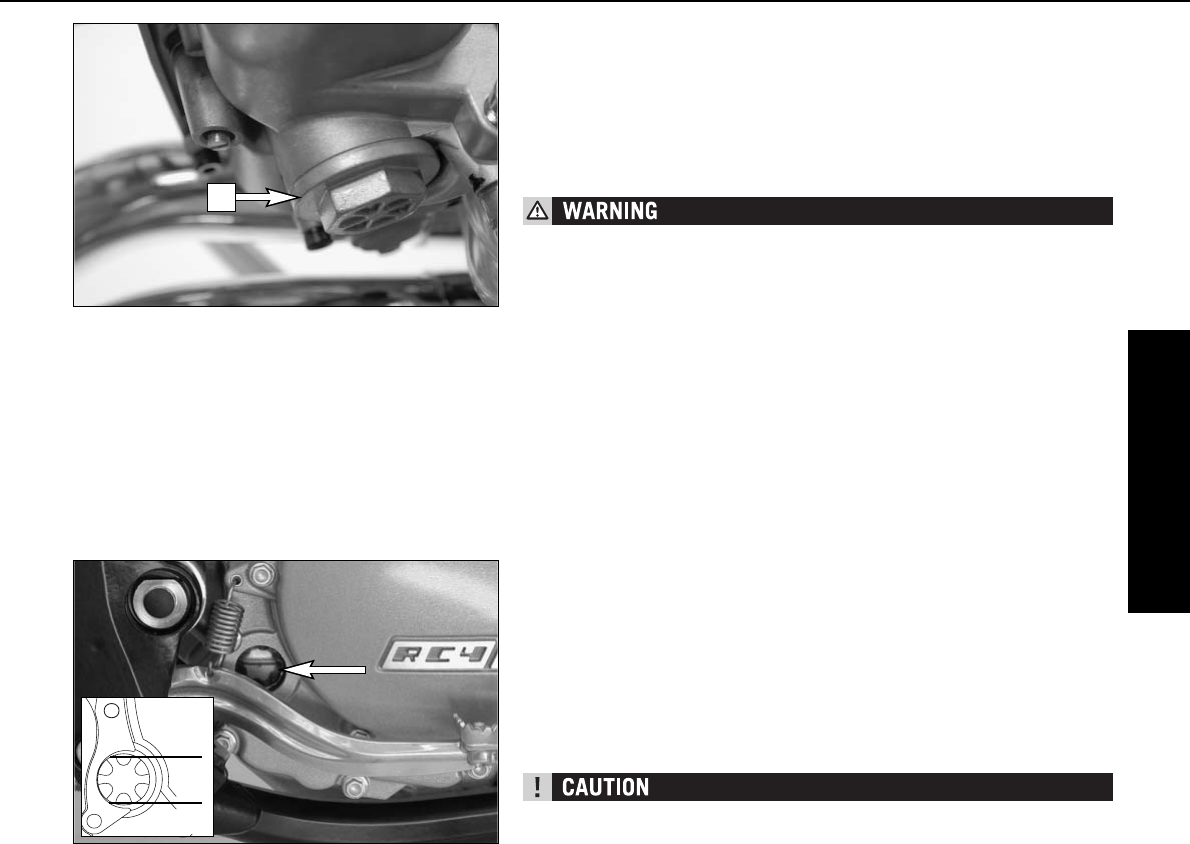
MAINTENANCE WORK ON CHASSIS AND ENGINE
»
ENGLISH
47
A
B
1
Engine oil
Automobile engine oil used to be used for four-stroke motorcycles before there
were separate motorcycle specifications. Different technical developments made
it necessary to have a separate specification for four-stroke motorcycles - the
JASO T903 MA standard. Whereas car engines require long changing inter-
vals, motorcycle engines require a higher power output at higher speeds. Most
motorcycle engines also use the same oil to lubricate the transmission and
the clutch. The JASO MA standard responds to these special requirements.
Only use fully synthetic engine oils that meet the JASO MA quality require-
ments (see information on the can).
KTM recommends Motorex Power Synt 4T 10W/50.
Draining the float chamber of the carburetor
Following every wet-cleaning procedure, the float chamber of the carburetor
should be drained in order to remove any water that may have penetrated into
it. Water in the float chamber leads to engine malfunction.
Make sure you do this while the engine is cold. Close the fuel tap and place a
cloth under the carburetor, which is capable of absorbing the leaking fuel.
Unscrew the plug [1] and clean it with compressed air. Then, mount the plug
together with the gasket, open the fuel tap, and check the float chamber for leaks.
– Fuel is easily flammable and toxic. When handling fuel, be sure to exer-
cise the utmost caution. Never perform any work on the fuel system near
open flames or burning cigarettes.
– Always allow the engine to cool off first. Immediately clean up any fuel
which may have been spilled. Materials saturated with fuel are also easily
flammable. In case you ingested fuel or fuel splashed into your eyes, con-
sult a doctor immediately.
– Dispose of the fuel properly.
Checking the engine oil level
The engine oil level can be checked with the engine either warm or cold. Place
the motorcycle in an upright position and on a horizontal surface (not on the
side stand).
If the engine is cold, the engine oil must be visible at the lower edge of the
inspection glass [A].
If the engine is warm, the engine oil must be visible up to the upper edge of
the inspection glass [B].
Replenish the engine oil, if necessary.
Insufficient amounts of or low-grade engine oil lead to premature wear in the
engine.


















